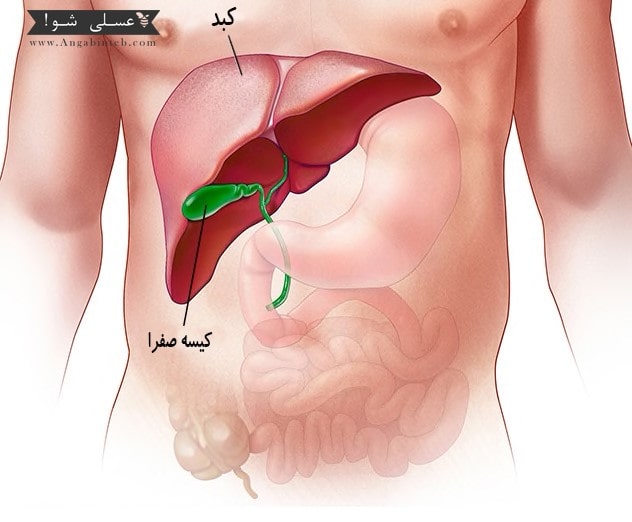
Definition of non-alcoholic fatty liver disease
Non-alcoholic fatty liver disease is a condition in which excess fat is stored in a person's liver. (Excess fat stored in a person's liver can cause non-alcoholic fatty liver disease.) But this accumulation of fat is not due to excessive alcohol consumption.
There are several stages of non-alcoholic fatty liver
-
Simple fatty liver: The accumulation of fat in liver cells that is largely harmless and can only be detected in tests performed for other reasons.
-
Non-alcoholic steatohepatitis: A more serious form of non-alcoholic fatty liver disease in which the liver is (was) inflamed.
-
Fibrosis: When persistent inflammation causes ulcers around the liver and surrounding blood vessels, but the liver is still able to function normally.
-
Cirrhosis: The most severe stage that occurs after years of inflammation.
Complications of non-alcoholic fatty liver disease
Cirrhosis of the liver can lead to the following
-
Accumulation of fluid in the abdomen (ascites)
-
Swelling of the arteries in the esophagus (esophageal varices); Which can rupture and cause bleeding.
-
Confusion, drowsiness and stuttering (hepatic encephalopathy)
-
liver cancer
The final stage of liver failure, which means that the liver loses its function.
Symptoms of non-alcoholic fatty liver disease
Non-alcoholic fatty liver disease usually causes no signs or symptoms. When this happens, the symptoms often include the following:
-
Fatigue
-
Pain or discomfort in the upper right abdomen
Possible signs and symptoms of non-alcoholic steatohepatitis and advanced liver ulcers (cirrhosis) include
-
Abdominal swelling (ascites)
-
Enlarged blood vessels below the surface of the skin
-
Enlarged spleen
-
Redness of the palms
-
Jaundice of the skin and eyes (jaundice)
Causes of non-alcoholic fatty liver disease
These people are more likely to develop non-alcoholic fatty liver disease - either simple fatty liver or non-alcoholic steatohepatitis -:
-
Overweight or obesity
-
Insulin resistance
-
Abnormal levels of fats in the blood
-
Type 2 diabetes
Useful tips in people with non-alcoholic fatty liver disease
Adopting a healthy lifestyle is the main way to manage non-alcoholic fatty liver disease. for example:
-
Weight loss: You should aim for a BMI between 18.5 and 24.9.
-
Eat a healthy diet: Try a balanced diet that is high in fruits, vegetables, protein and carbohydrates but low in fat, sugar and salt.
-
Exercise regularly: Do at least 150 minutes of moderate-intensity activity a week, such as walking or cycling.
-
Quit smoking.
Diet in non-alcoholic fatty liver disease
-
Your doctor may advise you to limit fat intake to prevent or treat this condition.
-
Replacing unsaturated fats, especially omega-3 fatty acids in your diet with saturated fats and trans fats, if you have non-alcoholic fatty liver disease can reduce your risk of heart disease.
-
Your doctor may suggest other dietary changes to help treat nonalcoholic fatty liver disease and nonalcoholic steatohepatitis:
-
Eat more low-glycemic foods, such as most fruits, vegetables, and whole grains.
-
Avoid foods and beverages that contain large amounts of simple sugars (especially fructose).
-
Avoid heavy alcohol consumption, which can damage your liver (up to 4 drinks per day for men and up to 3 drinks per day for women)
12 useful nutrients in non-alcoholic fatty liver disease
-
Coffee to reduce abnormal liver enzymes
-
Vegetables to prevent fat formation
-
Soy cheese to reduce fat
-
Fish to control inflammation and control body fat levels
-
Oatmeal for energy
-
Walnuts to improve the liver
-
Avocado to help protect the liver
-
Milk and other low-fat dairy products to prevent liver damage
-
Sunflower seeds for antioxidants
-
Olive oil for weight control
-
Garlic to lose weight
-
Green tea to absorb less fat
6 foods that should be avoided in non-alcoholic fatty liver disease
-
Alcohol
-
sugar Loaf
-
Fried foods
-
Salt
-
White bread, rice and pasta
-
Red Meat




